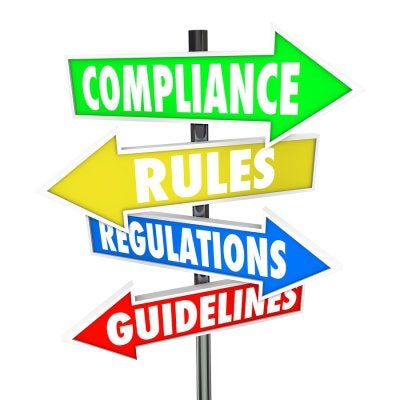-
How Can Patients Get Medical Marijuana Cards in Maryland?
Advocates of medical marijuana say that the drug can help with everything from chronic pain to glaucoma. It may be used to treat seizure disorders, Crohn’s disease, and nausea from chemotherapy. However, while MD marijuana laws now allow the use of medical marijuana, it is still highly regulated. Prospective cannabusiness customers will need to meet strict eligibility requirements and follow a specific procedure in order to obtain a medical marijuana card.
Understand Limitations and Protections
Before prospective patients visit a Maryland cannabusiness, they should fully understand the ramifications of the new medical marijuana laws and how this legislation might affect them. Marijuana laws officially recognized the legal use of medical marijuana in April of 2013 with the
passage of House Bill 881. The bill allows certain patients to legally possess a 30-day supply of the drug. The amount that constitutes a 30-day supply has yet to be determined. The bill allows card-carrying patients and caregivers to be exempt from prosecution for purchasing and possessing medical marijuana , but only if the drug was acquired from a state-licensed dispensary. Patients and caregivers are not allowed to cultivate marijuana for medicinal purposes. Additionally, the new marijuana laws do not prohibit civil discrimination of patients and caregivers with regard to employment, housing, child custody, and organ transplants.
Fulfill the Eligibility Criteria
To obtain a medical marijuana card, patients must meet strict guidelines. They must be residents of Maryland and they must be able to provide proof of residency. In addition, they must be able to prove with the use of medical records that they have a qualifying medical condition. Qualifying conditions include chronic or debilitating conditions that result in persistent muscle spasms, severe nausea, severe or chronic pain, seizures, anorexia, wasting syndrome, or cachexia.Obtain a Written Certification
A written certification from a licensed Maryland physician will enable patients to obtain medical marijuana. However, only physicians who have received a special medical marijuana license may prescribe this drug to patients. Additionally, the law emphasizes that patients are encouraged to develop a long-term relationship with the prescribing physician. -
Changes in Maryland Marijuana Possession Laws
There have been some new MD marijuana laws, including SB 364, which decriminalizes the possession of less than 10 grams of marijuana. Under the MD marijuana law, those found in possession of this amount will be subject to a civil penalty, rather than the previous criminal penalty of $500 and up to 90 days in jail. These new marijuana laws took effect on October 1, 2014.
You can learn more about Maryland marijuana laws by watching this news clip. You’ll learn that critics of the legislation point out that the law doesn’t remove the criminal penalties for possession of paraphernalia. You’ll also hear about the new civil penalties for possession of less than 10 grams.
-
A Look at the Controversy Over Proposed Fees for Cannabusinesses in Maryland
The journey to legalize medical marijuana in Maryland has been anything but smooth. Setting aside the controversy of the MD marijuana laws themselves, many people are upset with the way in which the state plans to regulate cannabusinesses. Although HB 881 officially took effect on July 1, 2014, the Natalie M. LaPrade Medical Marijuana Commission has yet to finalize regulations regarding the exact way in which cannabusinesses will be handled in the state. For example, the commission recently proposed a schedule of fees for marijuana cultivation facilities and medical marijuana dispensaries. Public reactions to the proposed fees have been largely negative.

Proposed Fees
The commission has planned to issue 15 licenses to medical marijuana growers to start with. Its members recently announced that they might charge these growers as much as $125,000 in fees. While this sum seems exorbitant, it might have been met with less criticism had it been a one-time fee. However, the panel recommended making it an annual fee. Prospective cannabusiness owners who plan to open a medical marijuana dispensary can expect comparatively lighter fees – $40,000 per year. However, these fees are on top of the prohibitively expensive application fees, which can run as high as $6,000. Additionally, those who wish to start a Maryland medical marijuana business must provide thorough documentation with regard to the sources of their capital.Proponents
The General Assembly has noted that taxpayer money will not be financing the fledgling medical marijuana industry in Maryland. It’s been estimated that about 45,000 patients per year might apply for a patient ID card. The program to evaluate patient eligibility, inspect growers and dispensaries, and launch a comprehensive public education campaign is expected to cost about $3.5 million per year. Proponents of the proposed fee schedules note that the hefty fees for growing and dispensing medical marijuana are necessary to partially fund the cost of the program.Opponents
However, opponents note that the sheer amount of the annual fees could force small medical marijuana dispensaries and other cannabusinesses out of the industry. They have also noted that the fees seem out of alignment with the projected demand for the product, and that prohibitively expensive operating costs could fuel black market sales. -
How to Comply with Cannabusiness Regulations
If you plan to open a Maryland cannabusiness, you’re likely excited to get your share of what is expected to grow into a multi-billion dollar industry. However, for your cannabusiness to be successful—and legal—you must maintain strict adherence with all applicable regulations . Since marijuana laws are quickly evolving, it’s best to consult a medical marijuana lawyer regarding the latest regulations. Maintaining an ongoing relationship with a medical marijuana lawyer can ensure that your business never runs afoul of state law.
The regulations for cannabusinesses are strict and apply to every aspect of the business, from obtaining the proper permits to devising a security plan to documenting the source of your capital. These regulations apply to four types of cannabusinesses in Maryland: Cultivators, safety compliance facilities (laboratories), retailers (dispensaries), and marijuana product manufacturers, such as those that produce marijuana-infused food items. Your lawyer can ensure that the type of business you plan to operate stays in compliance by submitting the appropriate application and renewal fees, prohibiting those under 21 from accessing your premises, and labeling your products correctly.

-
Decoding Maryland’s Medical Marijuana Law: Understanding Access Qualifications
Although the new MD marijuana laws have legalized the use of the drug for certain medicinal purposes, the specific regulations regarding the cultivation, sale, and use of marijuana are still being finalized. The medical marijuana industry in Maryland is expected to significantly expand by 2015. Individuals who are interested in forming a cannabusiness should consult a medical marijuana lawyer in Maryland to help them learn about the new regulations, which include restricting access to the drug.

Qualifying Patients
HB 881, which provides for the formation of medical marijuana dispensaries, limits the patients that may have access to medical marijuana. The patient must be a resident of Maryland who is at least 18 years of age. Individuals who are younger than 18 may be granted an exception by the commission if their physicians recommend it. All individuals must obtain a patient ID card and their physicians must recommend the use of medical marijuana for their conditions. A physician can only do so if he or she has a bona fide physician-patient relationship.Qualifying Conditions
In addition to these patient regulations, patients must have been diagnosed with a qualifying medical condition . They must have been diagnosed with severe pain, severe nausea, wasting syndrome, anorexia, cachexia, seizures or severe muscle spasms, glaucoma, or post-traumatic stress disorder (PTSD). Any other medical condition must gain approval from the commission.Approved Physicians
Even if patients meet all of the above criteria, they must still develop a bona fide physician-patient relationship with a physician who has obtained state approval to recommend medical marijuana. The certifying applications for physicians are rigorous. Physicians must detail exactly how they will issue written certifications for medical marijuana for qualifying conditions and upon what basis they might deny certifications to patients. They must also describe how they plan to screen patients for substance dependency both before and after issuing a certification, and they must explain their plans for providing follow-up care and assessing patient outcomes. -
Strategic Advice for New Cannabusiness Owners in Maryland
 Cannabusinesses in Maryland face challenges that are unique to this particular industry. The regulatory environment is rapidly changing , it may be difficult to secure capital, finding a location can prove challenging, and it can even be tricky to establish a commercial relationship with a bank. Prospective cannabusiness owners need the help of professionals who can offer personalized, expert advice and actionable solutions. This is why the Medical Cannabis Law Group is offering strategic advice for new cannabusiness owners in Maryland.
Cannabusinesses in Maryland face challenges that are unique to this particular industry. The regulatory environment is rapidly changing , it may be difficult to secure capital, finding a location can prove challenging, and it can even be tricky to establish a commercial relationship with a bank. Prospective cannabusiness owners need the help of professionals who can offer personalized, expert advice and actionable solutions. This is why the Medical Cannabis Law Group is offering strategic advice for new cannabusiness owners in Maryland. Our experts offer strategic advice to help you not only launch your cannabusiness, but see it succeed through long-term planning and careful risk management. Our team has extensive knowledge of the still-evolving marijuana laws. We stay on top of the latest developments and pass on regulatory information directly to you. Not only do we provide step-by-step advice on forming your business; we also provide personalized consultations regarding national and state regulations, and violations and complaints.
-
Legal Services Available for Medical Cannabusiness Owners
Launching and running a Maryland medical marijuana business, popularly known as a cannabusiness, is no easy feat. If you’re considering taking advantage of the latest MD marijuana laws , you’ll need to conduct an exhaustive review of the legislation, regulations, protocols, permits, and similar facets of the business. Or, you could work with a medical marijuana lawyer who can handle all of that for you and ensure that your business is in full compliance with all applicable regulations. Since you’re planning to form a very specialized type of business, you need to work with a lawyer who has in-depth knowledge of the field.

Cannabusiness Formation
It’s highly advisable to consult a medical marijuana lawyer before you even fill out the paperwork to form your cannabusiness or apply for a permit. An attorney with specialized knowledge of the industry can help you understand the applicable marijuana laws in MD and any local regulations you need to be aware of. A skilled attorney can clearly explain the necessary protocols and help you get your cannabusiness off to the right start.
Regulatory Compliance
It is perhaps not surprising that the medical marijuana industry is governed by an extensive collection of regulations. A medical marijuana lawyer can help you take the necessary steps to protect your business by ensuring it is in full compliance with all applicable regulations.
Medical Dispensary and Cultivation
If you’ve reviewed the application for a grower’s license in Maryland, you already understand how difficult it can be to obtain the necessary permit for cultivation of medical marijuana. The extensive application requires in-depth information such as a security plan, an integrated plan for quality control, a business plan with an organizational chart, and evidence of legal control of your proposed location. And those are just a few examples of the requirements you must fulfill for a permit. By consulting with a medical marijuana lawyer about your proposed cannabusiness, you can receive expert advice on correctly filling out the application and successfully obtaining your cultivation permit.
-
A Look at Maryland’s Medical Marijuana Bill
Maryland cannabusiness was recently given a significant boost by new legislation. This past April, Maryland’s governor signed a medical marijuana reform bill into law. The new MD marijuana law improves upon an older bill, which opponents claimed was essentially useless because it was so restrictive. The new law provides for the legalization of cannabis for usage by patients who have debilitating medical conditions.
As you’ll learn by watching this video, the new law allows licensed physicians who are on staff at a hospital or hospice program to prescribe medical marijuana for patients who meet certain criteria. Not only will it give the state’s cannabusiness a boost, but the law is also expected to help patients who are critically ill.
-
Maryland Governor Signs New Marijuana Bills Into Law
If you’re wondering how to start a medical marijuana dispensary in Maryland, your first step is to ensure that your cannabusiness is in full compliance with the latest laws. As a medical marijuana lawyer serving Maryland can explain to you, cannabusinesses have been recently affected by two major marijuana bills. In April of 2014, Governor Martin O’Malley signed SB 364 and HB 881 into law, giving renewed hope to patient advocates for medical marijuana.

SB 364
The first bill, SB 364, does not necessarily affect cannabusiness owners directly. However, it is a step toward improving the climate of acceptance toward medical marijuana. The law decriminalizes the possession of marijuana. A person who is found to possess less than 10 grams of marijuana will be charged with a civil offense and be ordered to pay a fine of up to $100 for a first offense. A second offense is punishable by a fine of up to $250 and any subsequent offenses are punishable by fines of up to $500. The new marijuana law also provides for a mandatory drug education program for third-time offenders and for offenders who are under the age of 21.
HB 881
The second of the two marijuana laws, HB 881, does directly affect cannabusiness owners. The law enables patients with certain health conditions to obtain medical marijuana from licensed dispensaries . The patients will also need to obtain a prescription for the drug from a physician who has been licensed in Maryland. Approved physicians must be on staff in a hospice program or in a hospital. These stipulations are intended to prevent abuse of the system. Furthermore, patients must obtain an identification card in order to purchase marijuana from a medical marijuana dispensary. The law applies to patients who suffer from certain debilitating conditions, such as seizures, severe muscle spasms, severe pain, wasting syndrome, and nausea. This is certainly not the first medical marijuana law passed in Maryland. In 2003, a weak marijuana law was passed; however, under that law, even if a patient could prove that he or she qualified to receive the drug, he or she could be punished with fines and prosecution. HB 881 grants these patients protection from prosecution.

